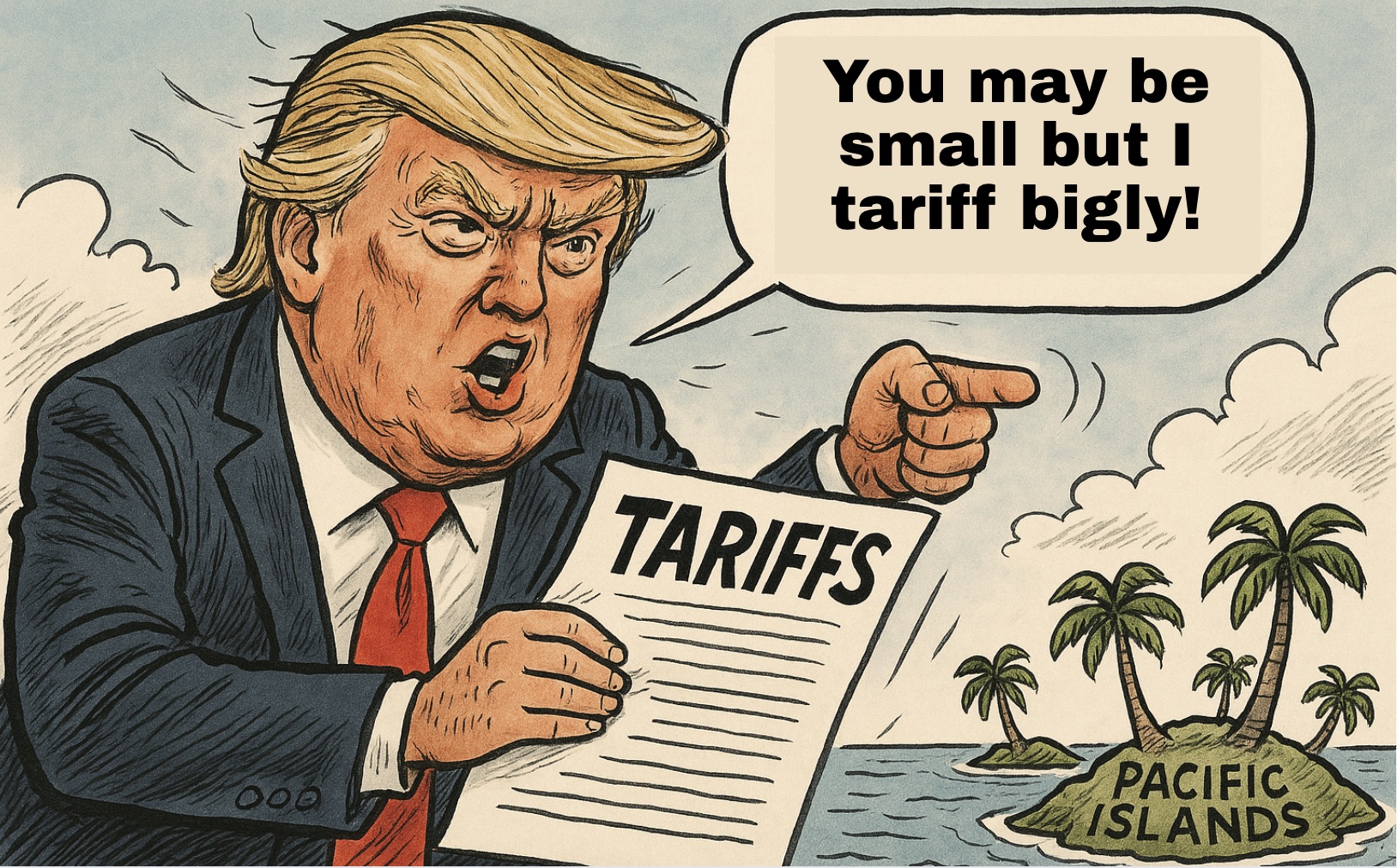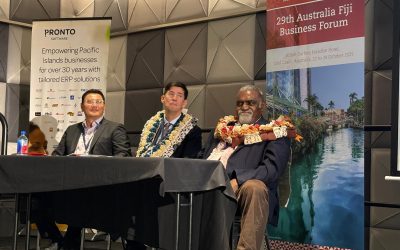In April 2025, the United States government, under President Donald Trump, announced the imposition of new tariffs on imports from various countries, including several Pacific Island nations. Fiji was notably affected, facing a 32% tariff on its exports to the U.S., a move that has elicited strong reactions from Fijian officials and business leaders.
Fiji’s Deputy Prime Minister and Minister of Finance, Professor Biman Prasad, labeled the tariff as “disproportionate and unfair.” He highlighted that the United States is a significant trading partner for Fiji, accounting for 10% of the nation’s total trade. Prasad emphasized that the new tariff could severely impact key Fijian exports such as mineral water, kava, fish products, and wood artifacts. He also noted that while Fijian exports face steep tariffs, 96% of U.S. imports into Fiji remain either duty-free or subject to minimal tariffs, underscoring the imbalance created by the U.S. action.
Prime Minister Sitiveni Rabuka expressed concern over the development, suggesting that Fiji might need to explore new markets and diversify its trade partnerships. He stated, “We cannot fight a war, a trade war particularly. We don’t have anything to counter with. So we will have to weather the storm and roll with the punches.”
The U.S. administration justified the tariffs by citing alleged unfair trade practices and currency manipulation by Pacific countries. Specifically, the U.S. claimed that Fiji imposes a 63% tariff on American goods, a figure disputed by Fijian authorities. Prasad clarified that 72% of imported U.S. goods into Fiji have zero tax, while 25% are taxed at less than 5%. He argued that using trade deficits to calculate reciprocal tariff rates is flawed and does not reflect the actual tariff structures in place.
Other Pacific nations were also affected by the U.S. tariffs. Nauru faced a 30% tariff, Vanuatu 22%, and Norfolk Island 29%. Most other Pacific countries, including Papua New Guinea, Samoa, Tonga, Solomon Islands, Cook Islands, and Kiribati, were subjected to a baseline tariff of 10%.
The Cook Islands, despite having minimal direct trade with the U.S., expressed concern over potential indirect effects of the tariffs. Adrienne Hosking-Tinirau, Chair of the Cook Islands Chamber of Commerce, warned that the ripple effects could disrupt global supply chains, raise import costs, and place additional strain on key sectors like tourism and retail.
In response to the tariffs, Deputy Prime Minister Prasad called for an urgent meeting of Pacific leaders to formulate a collective regional response. He stressed the importance of presenting the region’s special circumstances to the U.S. government and advocating for fair treatment in trade relations.
The imposition of these tariffs has prompted Pacific nations to reassess their trade strategies and seek diplomatic solutions to mitigate the economic impact. The situation underscores the vulnerability of small island economies to external policy changes and highlights the need for diversified trade partnerships and resilient economic policies.



